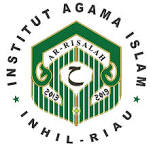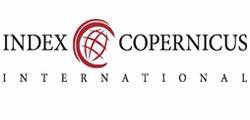Rehabilitasi Terhadap Pelaku Tindak Pidana Penyalahgunaan Narkoba di Badan Narkotika Nasional (BNN) Provinsi Bengkulu
DOI:
https://doi.org/10.61104/alz.v3i4.1937Keywords:
Penyalahgunaan Narkoba, Rehabilitasi, BNN, Kebijakan Publik, HukumAbstract
Penyalahgunaan narkotika merupakan salah satu masalah sosial dan hukum paling kompleks di dunia yang berdampak pada kesehatan, psikologis, dan stabilitas sosial ekonomi. Penelitian ini bertujuan menganalisis pelaksanaan program rehabilitasi terhadap pelaku tindak pidana penyalahgunaan narkoba oleh BNN Provinsi Bengkulu, termasuk efektivitas implementasi kebijakan, mekanisme pelaksanaan, faktor pendukung dan penghambat, serta kesesuaiannya dengan praktik internasional. Penelitian ini menggunakan metode yuridis empiris dengan pengumpulan data melalui wawancara, observasi, dan telaah dokumen, kemudian dianalisis secara deskriptif-kualitatif. Hasil penelitian menunjukkan bahwa program rehabilitasi dilaksanakan melalui tiga tahap utama, yaitu rehabilitasi medis, rehabilitasi sosial, dan pasca-rehabilitasi, dengan dua model perawatan: rawat inap dan rawat jalan. Meskipun capaian program menunjukkan hasil positif, efektivitasnya masih menghadapi hambatan berupa kurangnya dukungan keluarga, keterbatasan fasilitas, tingginya potensi konflik antarpenyalahguna, serta rendahnya sinergi antarinstansi. Penelitian ini menegaskan pentingnya penguatan kebijakan berbasis bukti, peningkatan kapasitas layanan, dan pemanfaatan standar praktik internasional untuk mencapai efektivitas program rehabilitasi secara optimal dan berkelanjutan.
References
Amirudin. (2004). Pengantar metode penelitian hukum. Jakarta: PT Raja Grafindo Persada.
Amasasmita, R. (2003). Tindak pidana narkotika transnasional dalam sistem hukum pidana Indonesia. Bandung: Citra Aditya Bakti.
Becker, J., & Fiore, D. (2022). Inter-agency collaboration and its impact on rehabilitation outcomes for drug users. International Journal of Drug Policy, 101, 102756. https://doi.org/10.1016/j.drugpo.2022.102756
Csete, J., Kamarulzaman, A., Kazatchkine, M., Altice, F., Balicki, M., Buxton, J., … & Beyrer, C. (2016). Public health and international drug policy. The Lancet, 387(10026), 1427–1480. https://doi.org/10.1016/S0140-6736(16)00619-X
Corrigan, P. W., Schomerus, G., & Smelson, D. (2021). Stigma, substance use disorders, and policy implications. American Journal of Psychiatry, 178(3), 211–223. https://doi.org/10.1176/appi.ajp.2020.20020184
Degenhardt, L., Peacock, A., & Colledge, S. (2023). Global burden of disease attributable to drug use disorders: Results from the Global Burden of Disease Study 2019. The Lancet Psychiatry, 10(1), 50–65. https://doi.org/10.1016/S2215-0366(22)00240-2
Djisman Samosir, C. (2016). Penologi dan pemasyarakatan. Bandung: Nuansa Aulia.
Harahap, M. Y. (2000). Pembahasan permasalahan dan penerapan KUHAP. Jakarta: Sinar Grafika.
Hamel, J. V. (1954). Het strafrecht. Haarlem: De Erven F. Bohn.
Hser, Y. I., Mooney, L. J., Saxon, A. J., Miotto, K., Bell, D. S., Zhu, Y., … & Huang, D. (2020). High mortality among patients with opioid use disorder in a large healthcare system. Journal of Substance Abuse Treatment, 112, 102–109. https://doi.org/10.1016/j.jsat.2020.02.003
Kelly, J. F., Humphreys, K., & Ferri, M. (2021). Alcoholics Anonymous and other 12‐step programs for alcohol use disorder. Cochrane Database of Systematic Reviews, 2021(6), CD012880. https://doi.org/10.1002/14651858.CD012880.pub2
Klimas, J., Gorfinkel, L., Giacomuzzi, S., & Bawor, M. (2019). Aging and addiction: Unique needs and treatment challenges in older adults. Substance Abuse Treatment, Prevention, and Policy, 14(1), 1–9. https://doi.org/10.1186/s13011-019-0203-1
Larney, S., Peacock, A., Leung, J., Colledge, S., Hickman, M., Vickerman, P., … & Degenhardt, L. (2020). Global patterns of opioid substitution therapy: Availability, coverage, and barriers to access. Addiction, 115(10), 1825–1836. https://doi.org/10.1111/add.15082
Linardon, J., Fuller-Tyszkiewicz, M., & Brennan, L. (2022). Smartphone-delivered cognitive behavioural therapy interventions for substance use disorders: A systematic review and meta-analysis. Addiction, 117(3), 711–728. https://doi.org/10.1111/add.15647
MacCoun, R., & Reuter, P. (2022). Drug war heresies revisited: Evaluating the effects of decriminalization and harm reduction policies. Annual Review of Law and Social Science, 18(1), 165–188. https://doi.org/10.1146/annurev-lawsocsci-102221-042415
Mardani. (2008). Penyalahgunaan narkoba dalam perspektif hukum Islam dan hukum pidana nasional. Jakarta: PT Raja Grafindo Persada.
Martono, N. (2012). Metode penelitian kuantitatif. Jakarta: PT Raja Grafindo Persada.
Marlatt, G. A., & Witkiewitz, K. (2021). Advances in relapse prevention: From cognitive-behavioral models to mindfulness-based interventions. Current Psychiatry Reports, 23(2), 12–22. https://doi.org/10.1007/s11920-021-01200-5
Meade, C. S., Towe, S. L., Hall, S. G., & Hobkirk, A. L. (2020). Counselor-to-patient ratios in effective addiction treatment programs: A review and recommendations. Substance Use & Misuse, 55(4), 509–519. https://doi.org/10.1080/10826084.2019.1700001
National Institute on Drug Abuse (NIDA). (2023). Drugs, brains, and behavior: The science of addiction. Retrieved from https://nida.nih.gov
Sinha, R. (2019). Stress, vulnerability, and addiction. Biological Psychiatry, 86(11), 823–833. https://doi.org/10.1016/j.biopsych.2019.06.020
Thoits, P. A. (2011). Mechanisms linking social ties and support to physical and mental health. Journal of Health and Social Behavior, 52(2), 145–161. https://doi.org/10.1177/0022146510395592
United Nations Office on Drugs and Crime (UNODC). (2023). World drug report 2023. Vienna: UNODC.
Volkow, N. D., Jones, E. B., Einstein, E. B., & Wargo, E. M. (2022). Prevention and treatment of substance use disorders: An overview of systematic reviews. JAMA Psychiatry, 79(2), 143–154. https://doi.org/10.1001/jamapsychiatry.2021.3139
World Health Organization (WHO). (2022). Treatment and care for people with drug use disorders in community settings. Geneva: WHO.
World Bank. (2023). Financing rehabilitation services: A global analysis. Washington, DC: World Bank.
Downloads
Published
How to Cite
Issue
Section
License
Copyright (c) 2025 Vevi Eko Saputra, Rosmanila, Ependi

This work is licensed under a Creative Commons Attribution-ShareAlike 4.0 International License.












 This work is licensed under a
This work is licensed under a 